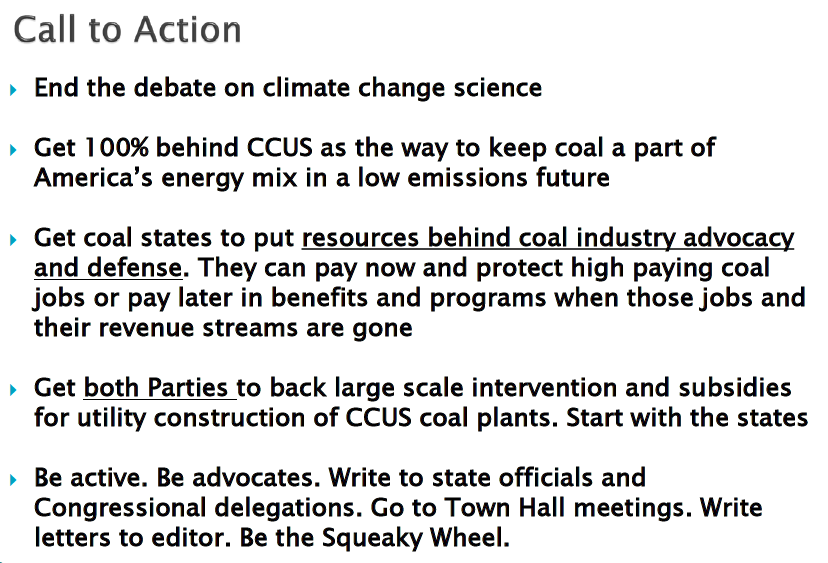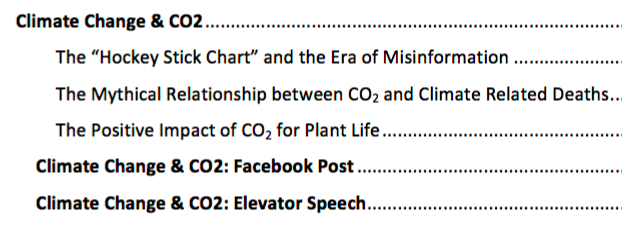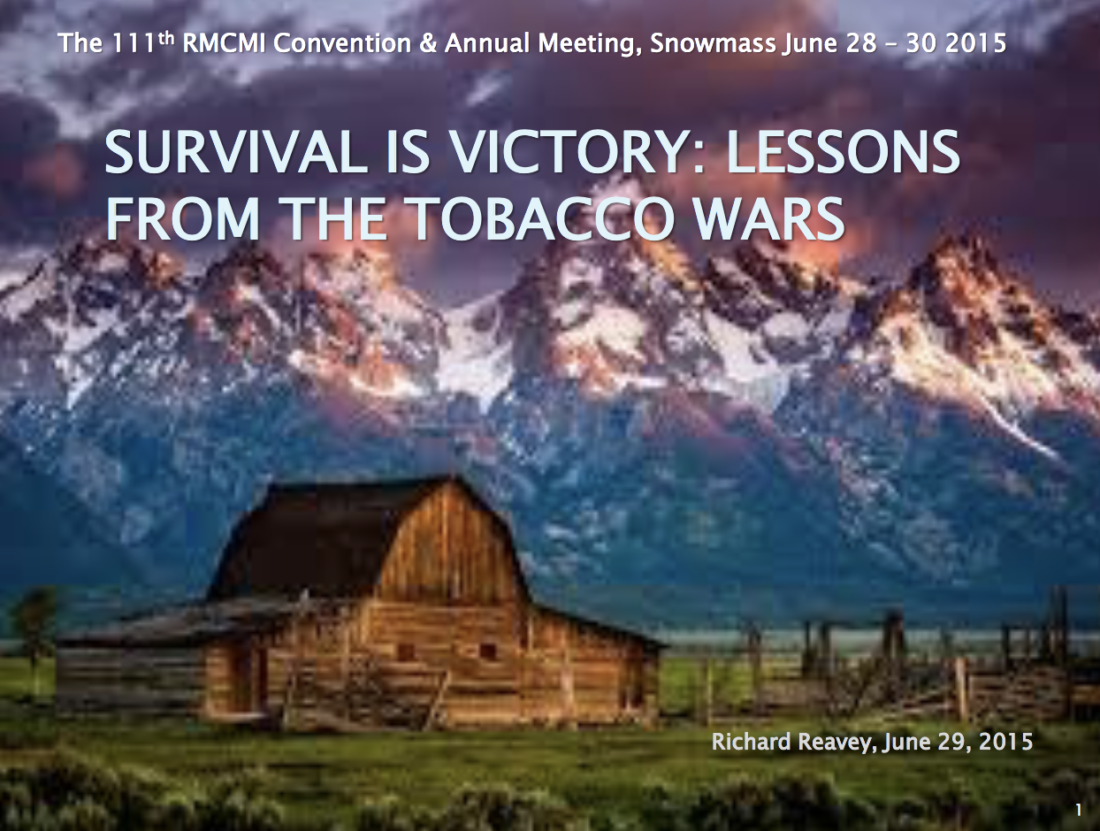The New York Times yesterday reported on a presentation given to a coal industry conference last year titled “Survival is Victory: Lessons from the Tobacco Wars.” The presentation was prepared by Richard Reavey, a former executive at Philip Morris and now a Vice President at Cloud Peak Energy, a coal company focused on mining taxpayer owned coal in Montana and Wyoming. From the Times:
The slides did not acknowledge the scientific consensus on climate change, but stated that public opinion had shifted so substantially that the question was moot.
“We need to get out of the binary debate on climate change,” one slide read. “Right, but dead,is not a victory.”
The presentation called on the industry to prepare for more stringent regulation, and to build a better future for the industry and its workers by pushing for more research into technology that can capture carbon dioxide from smokestacks, which could extend the use of coal.
The full presentation ends with a “Call to Action” for the coal mining industry, including a request to “End the debate on climate change science.”

It also urges the industry to “Get coal states to put resources behind coal industry advocacy and defense” – an approach that Cloud Peak has clearly been pursuing. Last year, some Montana lawmakers and organizations were found to have signed letters opposing efforts to reform the federal coal program. But as the Billings Gazette reported, “the letter elected officials signed as their own were copies of a 300-word form letter circulated by Cloud Peak Energy, a coal mining company.” Cloud Peak’s scheme was uncovered when one organization neglected to even customize the letter to include their own name, instead leaving the placeholder “insert name/group/entity.” Not included in the form letters was the fact that Cloud Peak Energy depends on subsidized access to this taxpayer-owned coal for the vast majority of their coal extraction.
In any case, Reavey’s presentation from June 2015 explicitly urges the coal industry to stop debating climate science, and get “100% behind CCUS” (Carbon Capture Utilization and Storage). And the New York Times story includes a comment from the executive director of the industry group where the presentation was given, claiming that the industry “has recognized that the time for arguing over climate science has passed.”
And yet, at another coal industry conference just last week, the American Coal Council distributed a “Coal Communications Toolkit” that includes a section full of climate denial talking points.

This coal industry communications toolkit includes suggested responses to a variety of concerns about the impacts of climate change, including melting Arctic sea ice, threats to polar bears, coral bleaching, extreme weather, drought, and crop failures. And the guidance is actually pretty simple – basically, just deny that those are real threats. Easy!
The toolkit also suggests trying to reframe climate change as a good thing:
Despite hyperbolic reporting and drastic regulatory measures, it is important to remember that there are benefits associated with climate change. CO2 is plant food.
This is vintage climate denial – a bit ridiculous even in the 1990s when the “Greening Earth Society“was pushing these lines, yet somehow still being promoted today by a coal industry trade group. And the American Coal Council isn’t alone – as I wrote in a report this week, the American Coalition for Clean Coal Electricity (ACCCE) has also pursued this approach:
ACCCE itself has also promoted climate denial talking points, including prominently in a 2014 report titled “The Social Costs of Carbon? No, the Social Benefits of Carbon.” This ACCCE report repeated fringe climate denial talking points that “the more CO2 there is in the air, the better plants grow,” and “Atmospheric CO2 enrichment generally tends to enhance growth and improve plant functions.”
To be sure, both ACCCE and the American Coal Council also push for more federal subsidies for carbon capture and sequestration – or as they call it “clean coal.” But they seem not to understand the obvious contradiction of calling for taxpayer support to try and reduce carbon pollution from burning coal, while simultaneously claiming that there are “benefits” to climate change.
More than anything, these presentations shows that for the coal mining industry, hyping carbon capture and sequestration is really just one of their public relations strategies – perhaps an approach to consider in circumstances where you’d feel a bit silly in full climate denier mode, but then right back to peddling the same old myths.

